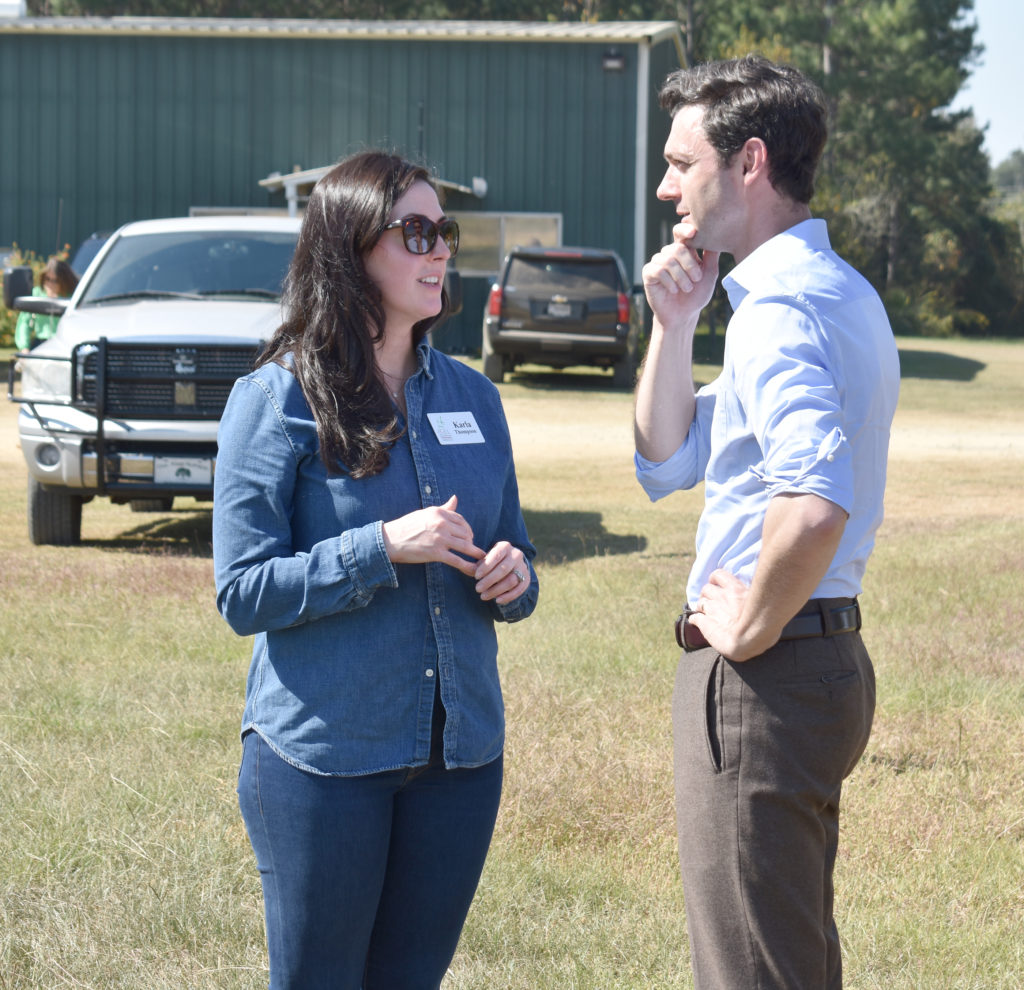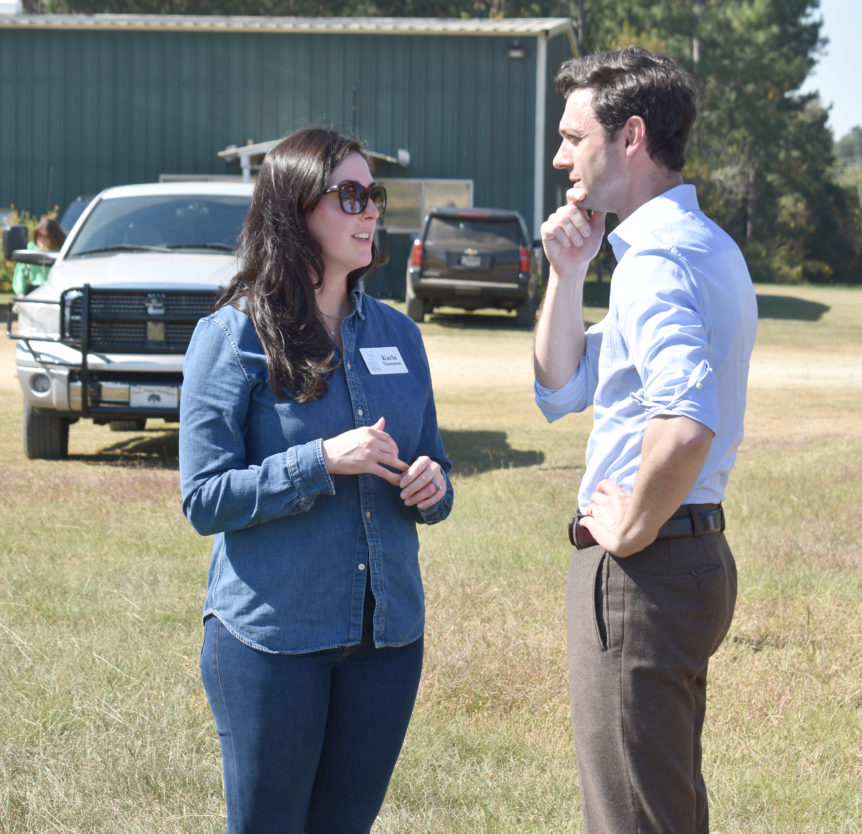
By Clint Thompson
Sen. Jon Ossoff’s visit to J.E.T. Farms in Camilla, Georgia, on Friday allowed Karla Thompson to show her senator the impact that imports left on her company’s blueberry crop. The impact was staggering; 13.5 acres of product not harvested this past season because it was not financially feasible to do so.
“Today was really important for us to have an opportunity to directly share the struggle that we’re having, specifically with the import situation. We have been in the blueberry business. We started it about five or six years ago, and due to a combination of imports flooding our market, tanking the price and the problem we’re having of getting affordable, quality labor, we have had to abandon our blueberries,” said Thompson, vice president of J.E.T. Farms. “To be able to show our elected officials firsthand the dangers of what can happen to the rest of the industry if we don’t get some help, it’s been really important.”
Protecting Our Produce Act

The Protecting Our Produce Act will help producers like Thompson who are impacted by imports from South America. Sen. Ossoff and Congressman Sanford D. Bishop Jr. (GA-02) touted the bill with Georgia growers when they visited the farm last week.
The bicameral bill would establish a five-year pilot program to provide support for producers of blueberry, squash, bell pepper, cucumber and asparagus when that crop’s national average market price falls below its five-year average price (reference price) if the difference is caused by unfairly priced imports.
It would hopefully prevent scenarios where fruit is left to rot in the fields because Southeast growers have been priced out of the market.
J.E.T. Farms proved they could produce bountiful blueberries. They just could not afford to harvest their crop.
“It was meant to be a test with hopes to expand in order to capitalize on a short market window where we could turn a decent profit. But that market window completely disappeared thanks to those imports,” Thompson said. “The situation was we’re producing plenty of good fruit, but then there would be times when the market price would be so low that it wouldn’t be enough to cover the costs of the harvest that day. We would have to decide whether to harvest the fruit and dig ourselves further into the hole just because we don’t want to waste our great product or just let it rot in the field because we can’t actually cover the costs to harvest it.”
Thompson hopes to start up her company’s blueberry operations again.
“I think it’s great for Georgia farmers to diversify into different crops, especially something that’s really healthy and good for all of us, like blueberries, fruits and vegetables,” Thompson said.










